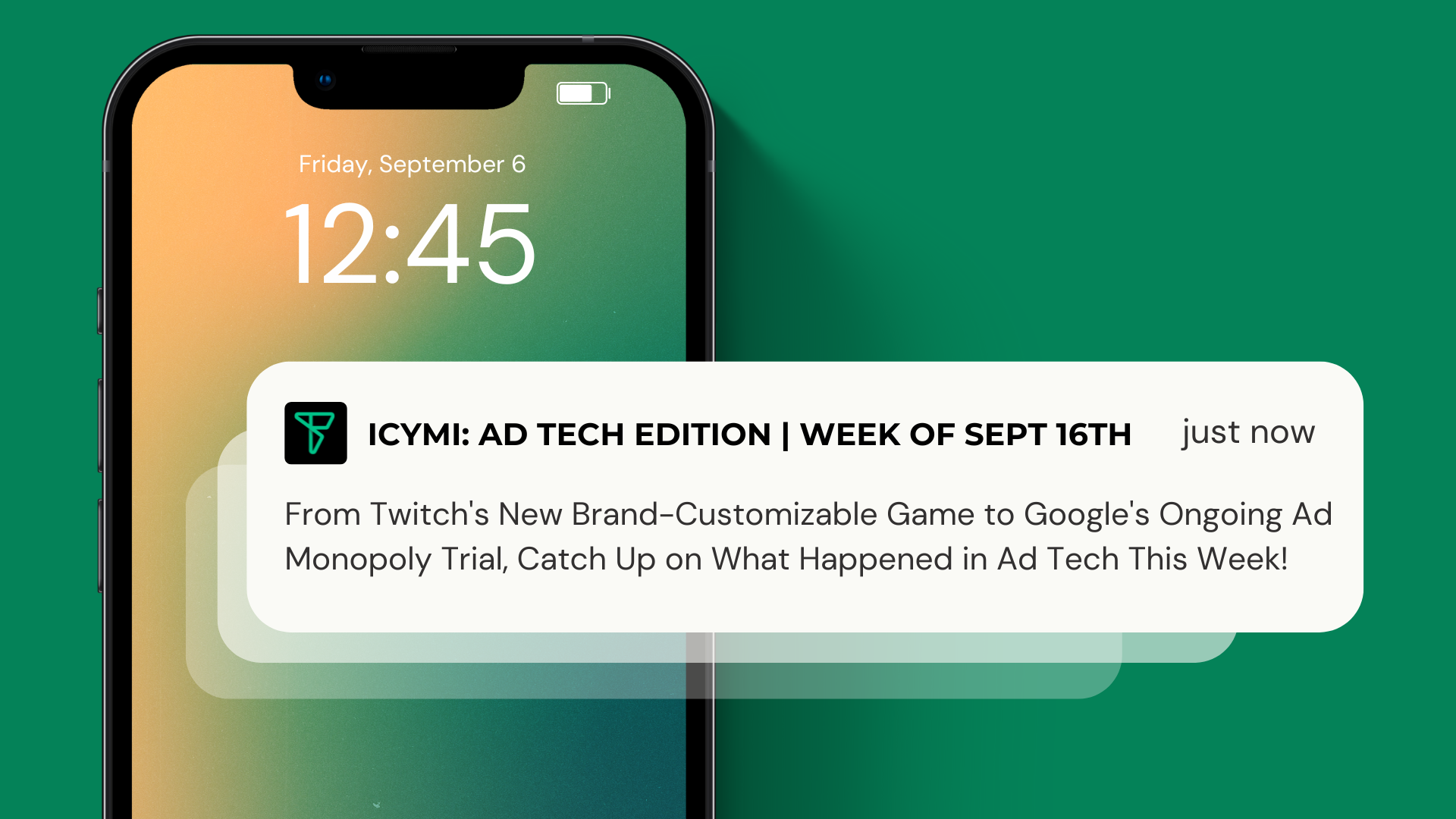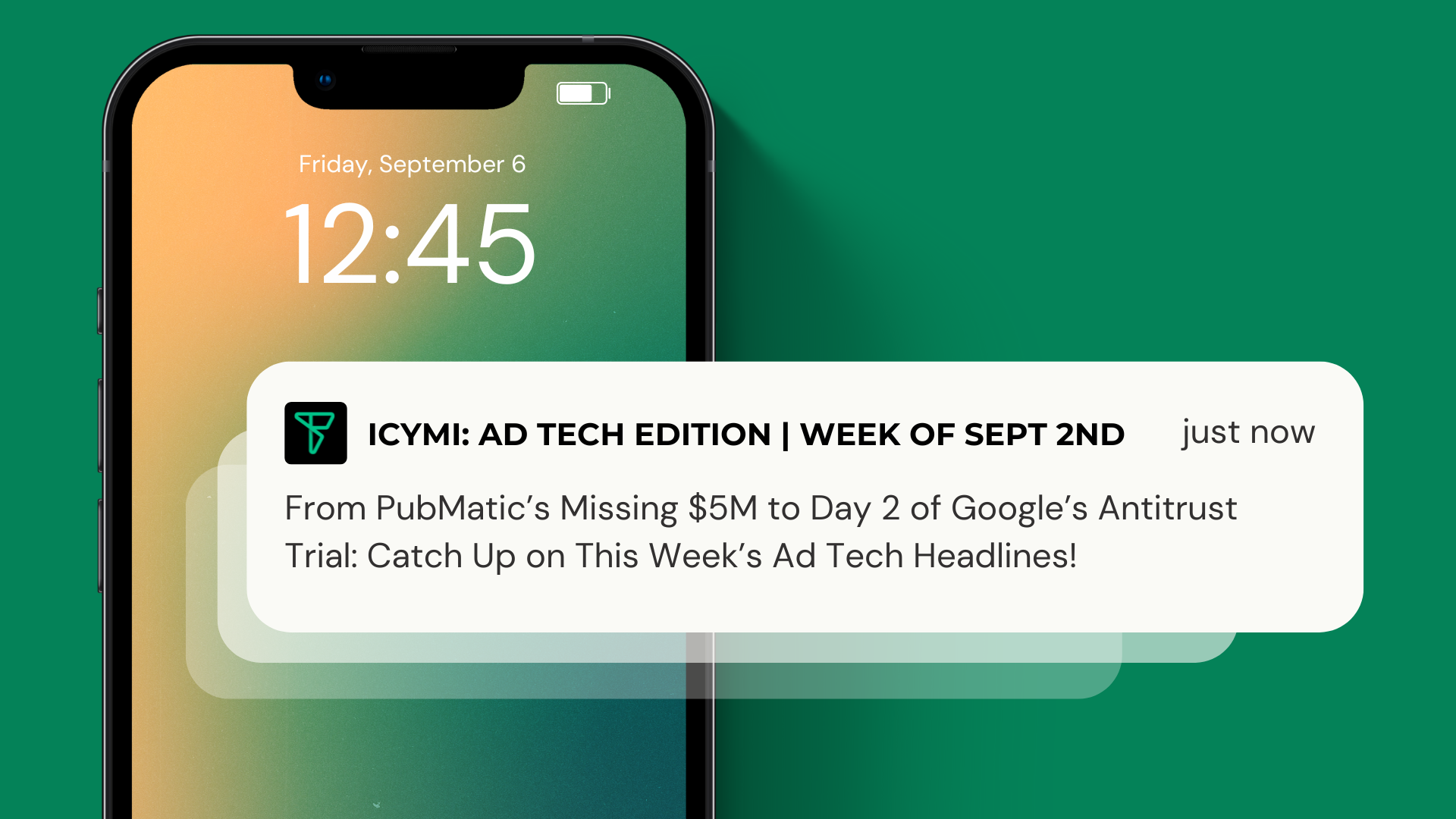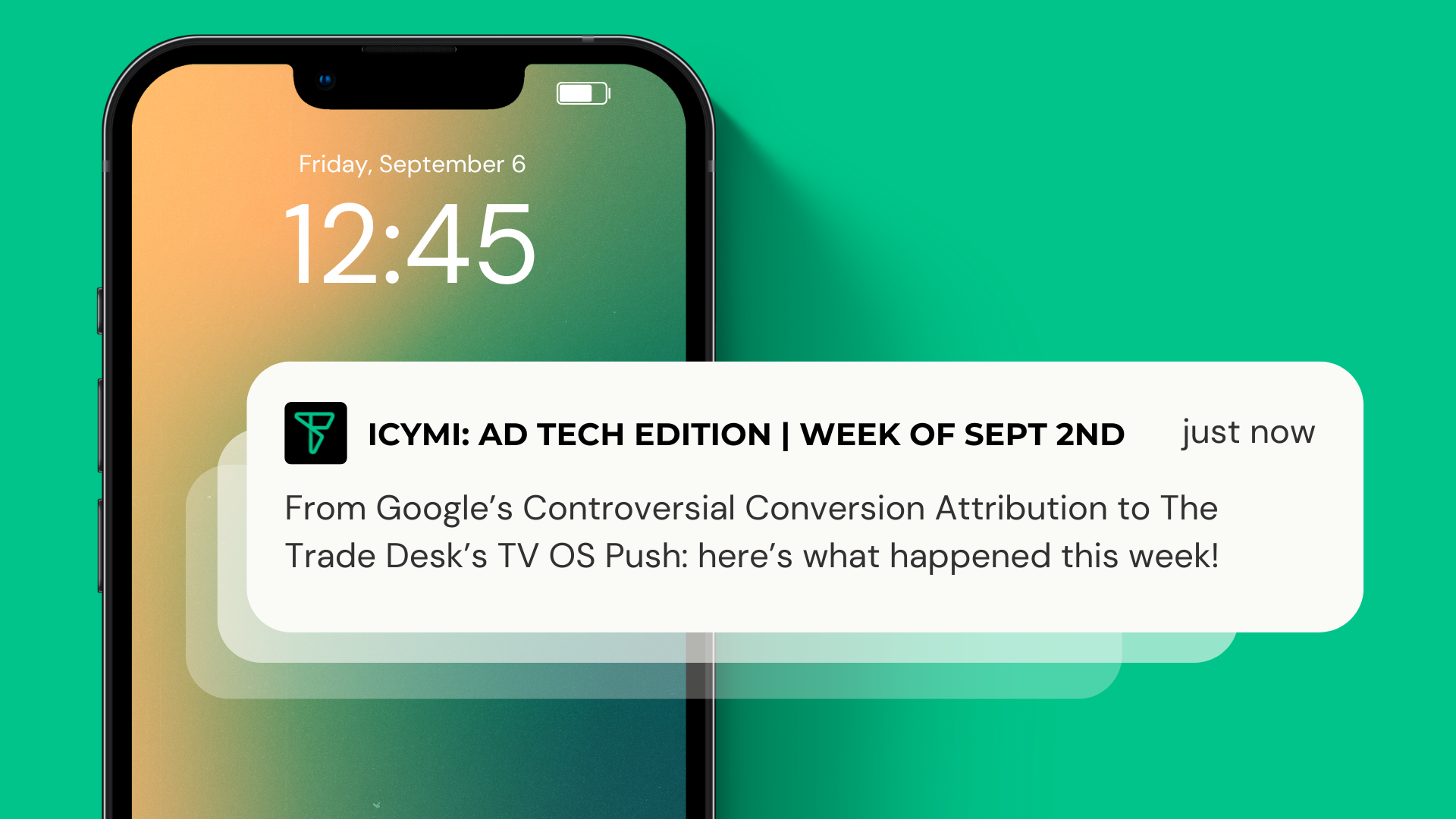Bits and Bobs from around the industry:
Magnite’s CTV Spend Swelled By 20% In 2023
Magnite’s revenue breakdown reveals the increasing significance of connected TV (CTV) for the company, representing almost 40% of its business in Q4 2022. While CTV’s share of revenue grew, the actual revenue from CTV was down 2% YoY in Q4. However, Magnite’s DV+ business, covering various ad formats except CTV, performed well with an 11% YoY increase in revenue. Despite the decline in CTV revenue, the company generated $187 million in Q4, a 7% YoY increase.
The CEO credited Magnite’s strong CTV performance to partnerships with major players like Roku, Warner Bros. Discovery, Paramount, Disney, Samsung, LG, and Vizio. He also highlighted the potential for new advertisers entering the CTV market due to Amazon Prime Video’s shift to an ad-supported model.
In response to questions about third-party cookie deprecation, the CEO expressed confidence in Magnite’s preparedness, citing integrations with alternative identity solutions and full support for Google’s Privacy Sandbox. He emphasized the company’s ability to navigate any potential challenges, even in the face of a decline in CPM, by leveraging volume to maintain revenue levels.
The AdOps Team of the Future
AdOps professionals are actively incorporating generative AI, like ChatGPT, into their workflows to enhance productivity and streamline tasks. These tech-savvy individuals are well-versed in prompt engineering, allowing them to query large language models (LLMs) effectively. AdOps teams use generative AI to manage time more efficiently, automating repetitive tasks such as troubleshooting ad issues, creating HTML templates, and generating reports.
Additionally, AdOps professionals leverage generative AI to enhance their communications, making emails more polished, human-sounding, and empathetic. This use of AI helps individuals and teams present themselves more effectively to clients and colleagues. The interviewees reported using various generative AI tools, including ChatGPT, Gemini, Claud.ai, and Perplexity.ai, each with its subtle differences.
The adoption of generative AI in AdOps is seen as transformative, freeing up time for strategic thinking and allowing teams to focus on revenue growth and product development. The integration of AI tools is expected to continue evolving the AdOps team, enabling them to be more proactive and efficient in their roles.
32 media groups levy $2.3bn antitrust suit against Google over its adtech practices
The coalition of European media organizations filing the €2.1 billion ($2.3 billion) antitrust lawsuit against Google includes prominent names like Krone from Austria, DPG Media and Mediahuis from Belgium, TV2 Danmark A/S from Denmark, Sanoma from Finland, Agora from Poland, Prensa Iberica from Spain, and Ringier from Switzerland. The lawsuit contends that Google’s dominant role in the digital advertising ecosystem has unfairly harmed their publishing businesses, particularly impacting news media during a period when their economic model is already weakened by declining print subscriptions and associated advertising revenue.
Google, in response, rejects the allegations and plans to vigorously defend itself against the lawsuit, emphasizing its collaborative efforts with publishers and its support for their businesses through the adaptation and evolution of its advertising tools. Google’s legal director, Oliver Bethell, referred to the lawsuit as “speculative and opportunistic.”
This legal action in Europe mirrors the scrutiny Google faces in the United States, where the Department of Justice sued the tech giant last year, accusing it of using deceitful and anti-competitive strategies to establish a dominant position in the online search market. The trial for the US case is scheduled for September. The European media coalition hopes to find success in the Netherlands, a jurisdiction with a favorable track record for antitrust cases. Following the news of the lawsuit, Google’s shares experienced a more than 2% dip.





